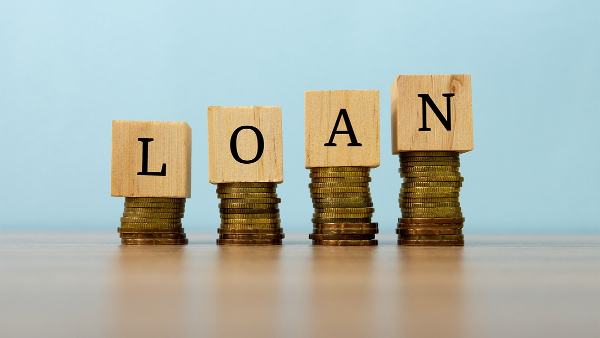Personal loans are a popular financial tool used to address various needs, ranging from consolidating debt to funding a home improvement project or paying for an unexpected medical expense. They offer flexibility and convenience, making them an attractive option for many borrowers. However, like any financial decision, taking out a personal loan comes with its own set of pros and cons. Understanding the benefits of a personal loan can help you determine whether it is the right solution for your financial needs. In this article, we’ll explore the key benefits of personal loans, how they work, and why they might be a good option for you.
Key Takeaways:
- Personal loans offer flexibility in how the funds can be used, ranging from debt consolidation to covering unexpected expenses.
- With fixed interest rates and predictable payments, personal loans provide stability and transparency in your finances.
- Personal loans can help improve your credit score by consolidating debt and demonstrating responsible repayment behavior.
- It’s important to compare lenders and loan terms before applying to ensure you get the best interest rates and favorable conditions.
What Is a Personal Loan?
A personal loan is a type of unsecured loan offered by banks, credit unions, online lenders, and other financial institutions. It is typically issued based on the borrower’s creditworthiness and does not require collateral like a home or car. The loan amount can range from a few hundred dollars to tens of thousands of dollars, depending on the lender and the borrower’s financial profile.
Personal loans usually come with fixed interest rates and set repayment terms, which makes them an appealing option for those seeking predictable monthly payments. This clarity on repayments, combined with the flexibility in usage, makes personal loans one of the most common forms of borrowing.
Key Benefits of Taking Out a Personal Loan
Understanding the key benefits of a personal loan can help you make an informed decision on whether it’s the right choice for your financial goals. Here are the primary advantages of taking out a personal loan:
1. Flexibility in Use
One of the standout benefits of a personal loan is the flexibility in how you can use it. Unlike loans that are designated for a specific purpose (such as a mortgage for buying a home or an auto loan for purchasing a car), a personal loan can be used for virtually any expense. Some common uses for a personal loan include:
- Debt consolidation: Combining multiple high-interest debts into one lower-interest loan.
- Home improvements: Funding renovations or repairs on your home.
- Medical expenses: Covering medical bills or unexpected health-related costs.
- Weddings and events: Financing major life events such as weddings or vacations.
- Emergency expenses: Dealing with sudden, unforeseen costs like car repairs or home appliance replacements.
This flexibility is one of the primary reasons why people choose personal loans, as it provides them with the freedom to address a wide range of financial needs.
2. Fixed Interest Rates and Predictable Payments
Many personal loans come with a fixed interest rate, which means the interest rate you are charged will not change over the course of the loan. This is particularly useful for budgeting purposes, as it ensures you know exactly how much you will need to pay each month.
Fixed-rate loans are beneficial because they eliminate the uncertainty that comes with variable-rate loans, where your monthly payments could fluctuate depending on market conditions. With a fixed-rate personal loan, you have predictable monthly payments, making it easier to plan your finances and avoid surprises.
3. Faster Access to Funds
Personal loans typically provide quicker access to funds compared to other types of financing, such as home equity loans or lines of credit. In many cases, once your loan application is approved, you can receive the money within a few days or even the same day, depending on the lender and the amount of the loan. This speed is particularly valuable in situations where immediate financial assistance is required, such as dealing with an unexpected emergency or paying for an urgent medical procedure.
4. No Collateral Required
Since personal loans are usually unsecured, you do not need to pledge any of your assets as collateral (such as your home or car). This is a significant benefit, especially for those who may not have assets to use as security or do not want to risk losing their property in the event they fail to repay the loan.
However, since the lender is not backed by collateral, personal loans typically come with higher interest rates than secured loans. Nonetheless, they offer a level of protection for borrowers who do not wish to risk their property.
5. Debt Consolidation
One of the most common reasons people opt for a personal loan is to consolidate high-interest debt, such as credit card balances, into one manageable loan with a potentially lower interest rate. By consolidating debt, you can simplify your finances and reduce the total amount of interest you pay.
For example, if you have multiple credit cards with high-interest rates, consolidating those balances into a personal loan with a lower fixed-rate can save you money in the long run. Additionally, consolidating your debts into one loan means you only have to manage one monthly payment, making it easier to stay on top of your payments.
6. Potential for Lower Interest Rates
Personal loans generally offer lower interest rates compared to credit cards and payday loans, especially if you have good credit. Credit cards, for instance, can have interest rates as high as 20% or more, while personal loans typically offer rates in the range of 6% to 36%, depending on your creditworthiness.
This makes personal loans a cost-effective way to borrow money, particularly if you are using the funds for debt consolidation or to finance large expenses. By securing a lower interest rate, you can save money on interest payments over the life of the loan.
7. Improved Credit Score (with Responsible Repayment)
Taking out a personal loan and managing it responsibly can potentially improve your credit score. Credit scores are impacted by several factors, including the types of credit you use, your credit utilization rate, and your payment history. By using a personal loan to consolidate debt and make timely payments, you may reduce your credit utilization rate (the ratio of your credit card balances to credit limits), which can positively affect your score.
Additionally, making consistent, on-time payments on your personal loan will show that you are a responsible borrower, further improving your credit score over time.
8. Potential Tax Benefits
In some cases, personal loans used for certain purposes (such as funding home improvements) may offer tax advantages. For example, if you use a personal loan to make substantial improvements to your primary residence, the interest on that loan may be tax-deductible, much like a mortgage. However, you should consult a tax professional to determine whether your loan qualifies for tax deductions based on your specific situation.
How to Choose the Best Personal Loan for Your Needs
When selecting a personal loan, consider the following factors:
- Interest Rates: Compare the interest rates offered by various lenders. A lower interest rate will save you money in the long run.
- Loan Terms: Look at the repayment terms, including the loan duration and monthly payments. Ensure that the terms fit your budget and financial goals.
- Fees: Pay attention to any fees associated with the loan, such as origination fees or late payment penalties.
- Lender Reputation: Choose a lender with a strong reputation for customer service and fair lending practices.
- Prepayment Penalties: Some loans may charge a penalty if you pay off the loan early. Make sure you understand the terms before signing the agreement.
Conclusion
Personal loans can offer a wide range of benefits, including flexibility, predictable payments, and lower interest rates compared to credit cards or payday loans. They provide individuals with the financial freedom to cover various expenses and manage debt more effectively. However, it’s crucial to shop around and compare different lenders, loan terms, and fees to ensure you’re getting the best deal.
7 FAQs About Personal Loans
1. What is a personal loan?
A personal loan is an unsecured loan provided by financial institutions for a variety of personal expenses, such as debt consolidation, home improvements, or medical bills.
2. What can I use a personal loan for?
You can use a personal loan for nearly any purpose, including debt consolidation, medical expenses, home renovations, weddings, vacations, or unexpected emergencies.
3. How do I qualify for a personal loan?
Qualification for a personal loan typically depends on your credit score, income level, and debt-to-income ratio. Lenders will assess your financial situation before approving the loan.
4. Are personal loans secured or unsecured?
Most personal loans are unsecured, meaning you do not need to provide collateral. However, some lenders may offer secured personal loans that require collateral.
5. How long does it take to receive a personal loan?
The time it takes to receive a personal loan varies depending on the lender. Some lenders offer instant approval, and you may receive the funds within a few days.
6. Can I get a personal loan with bad credit?
It is possible to get a personal loan with bad credit, but the interest rates may be higher. Some lenders specialize in offering loans to borrowers with less-than-perfect credit.
7. Can I pay off my personal loan early?
Many personal loans allow you to pay them off early without penalty. However, it’s important to check the loan agreement to confirm there are no prepayment penalties.

